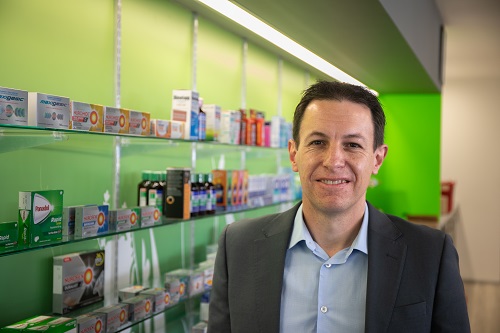Te Huataki Waiora School of Health Dean, Professor Jo Lane, says the University of Waikato was approached by several key pharmacy employers about developing a local offering to address the workforce shortages in the region.
Pharmacy to add to Waikato’s health offering
The University of Waikato intends to accept its first students in a new graduate-entry Master of Pharmacy Practice degree in early 2025, as it responds to the chronic shortage of pharmacists
02 Sep 2023

Professor Jo Lane
“About 70% of pharmacists work in a community pharmacy setting, meaning that pharmacists play a critical role in the delivery of clinically and culturally safe primary care. This is particularly important in regional areas, where access to a general practitioner is often limited.”
Professor Lane says the graduate-entry Master of Pharmacy Practice provides a complementary pathway to the existing Bachelor of Pharmacy programmes delivered by other providers and is intended to attract a new cohort of students into pharmacy.
“Despite a chronic shortage of pharmacists, enrolments in the existing pharmacy programmes have been in decline. So, to attract new students into pharmacy, we can’t just do more of the same.”
The graduate-entry pharmacy programme builds on the recent success of the University’s nursing programmes, which now boasts the largest graduate-entry nursing degree in the country.
Professor Lane says the pharmacy programme will be similar to that offered by the University of Sydney, which is one of several Australian graduate-entry pharmacy programmes that are recognised by the Pharmacy Council of New Zealand.
Students will be eligible to enrol in the programme if they have a previous Bachelor’s degree with a major in one of the molecular sciences, such as biochemistry, biomedical science, chemistry, molecular biology, or pharmacology.
“As we have a high proportion of eligible undergraduate students who are Māori (16%) compared to the national average (6%), the University of Waikato is well-positioned to encourage more Māori to consider a career in pharmacy.”
“The overarching goal of the programme is to prepare pharmacists that can provide culturally and clinically safe practice with expertise in the optimal and equitable use of medicines across Aotearoa. Students will develop a comprehensive understanding of Te Tiriti o Waitangi and how this is reflected in Te Pae Ora to ensure equity in pharmacy practice.”
In addition to domestic students, the University expects the programme to attract recent international students and overseas-trained pharmacists who are based in New Zealand but are unable to practice as their qualification isn’t recognised. Thirty students will be accepted in the first year of delivery, increasing to 50 students in the second and subsequent years.
“We know there is a chronic shortage of pharmacists in Aotearoa, especially outside the urban centres of Auckland, Wellington, Christchurch and Dunedin. The country has 8.04 pharmacists per 10,000 people*, which is less than most comparable nations such as Australia (8.97), USA (9.25) and Canada (11.09). However, the problem is even worse in our region, with just 6.67 pharmacists per 10,000 people – some 20% lower.”
Professor Lane says the Health Workforce Plan 2023/24 estimates the current pharmacist workforce shortage is 170, and that a further 570 pharmacists will be needed by 2032. “Based on our discussions with stakeholders, we think these estimates are low.”
The University has established a professional advisory board to develop the programme and has formally signaled its intention to seek accreditation with the Pharmacy Council of New Zealand.
People interested in expressing their interest in this new programme can register their details here.